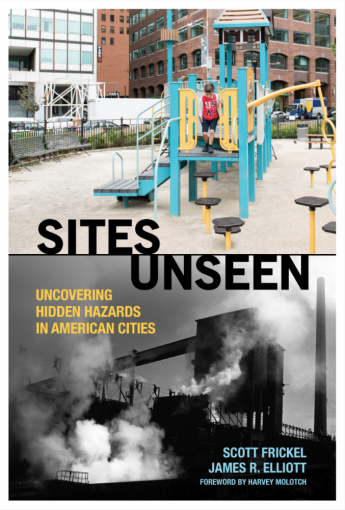 Frickel, who is Professor of Sociology and Environment and Society at Brown, is interested in viewing cities as "socioenvironmental processes." In Sites Unseen, he and coauthor Elliott investigate the industrial history of four different cities—New Orleans, Minneapolis, Philadelphia, and Portland, Oregon—in order to determine the fate of land that formerly housed manufacturing facilities. Most often, they find, the history of this land goes unexamined as it is reused and recycled for other uses "with limited or no regulatory oversight."
Frickel, who is Professor of Sociology and Environment and Society at Brown, is interested in viewing cities as "socioenvironmental processes." In Sites Unseen, he and coauthor Elliott investigate the industrial history of four different cities—New Orleans, Minneapolis, Philadelphia, and Portland, Oregon—in order to determine the fate of land that formerly housed manufacturing facilities. Most often, they find, the history of this land goes unexamined as it is reused and recycled for other uses "with limited or no regulatory oversight."
The publisher writes:
Using original data assembled and mapped for thousands of former manufacturers' locations dating back to the 1950s, they find that more than 90 percent of such sites have now been converted to urban amenities such as parks, homes, and storefronts with almost no environmental review. And because manufacturers tend to open plants on new, non-industrial lots rather than on lots previously occupied by other manufacturers, associated hazards continue to spread relatively unabated. As they do, residential turnover driven by gentrification and the rising costs of urban living further obscure these sites from residents and regulatory agencies alike.
For more information about the book, or to order your copy, visit the website.